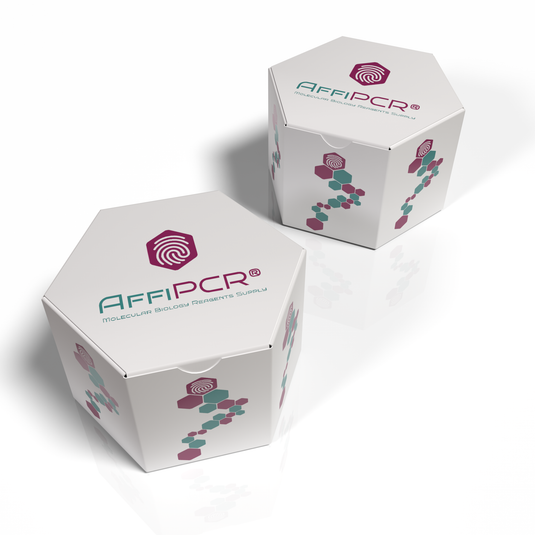AffiPCR® Taq HS DNA Polymerase (Glycerol-free)
AffiPCR® Taq HS DNA polymerase is a hot-start Taq polymerase obtained by mixing Champagne Taq antibody with Taq DNA polymerase in an optimal ratio. Due to the unique thermo stability of Champagne Taq antibody, the activity of Taq HS DNA polymerase is still blocked at temperature up to 55°C, which minimizes non-specific amplification during the mixing and system heating. When the reaction is kept at 95°C for more than 30 sec, Champagene Taq antibody is completely inactivated and Taq enzyme activity is completely released, ensuring that the PCR system has extremely high amplification sensitivity and specificity. The activation of Taq HS DNA polymerase is not affected by pH, ionic strength, etc. It is applicable for various hot-start PCR and qPCR based on Taq DNA polymerase and can be used to amplify gene with low copy numbers from complex templates (genome and cDNA). It is the hot-start Taq enzyme of choice for PCR/qPCR molecular diagnostic reagents. Taq HS DNA polymerase has higher stability and detection rate. This product is a glycerol-free version of Taq HS DNA polymerase, which can be used for lyophilization.
Compenents:
| Components |
AFG-M-0264 1,000 U |
AFG-M-0265 5,000 U |
AFG-M-0266 50,000 U |
| AffiPCR® Taq HS DNA Polymerase (Glycerol-free) (5 U/μl) | 200 μl | 1 ml | 10 × 1 ml |
Storage Conditions:
Store at -30°C ~ -15°C and transport at ≤0°C.
Applications:
It is applicable for amplification reactions of animal DNA, plant DNA, microbial DNA, etc.
Notes:
For research use only. Not for use in diagnostic procedures.
Source:
It is expressed from E.coli with the Thermus aquaticus DNA Polymerase gene.
Unit Definition:
One unit (U) is defined as the amount of enzyme that incorporates 10 nmol of dNTPs into acid-insoluble material in 30 min at 74°C, with activated salmon sperm DNA as the template/primer.

